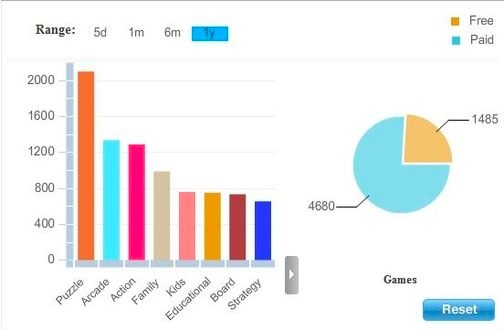Nothing is more annoying than going into iTunes to see what video games are available for the iPod Touch and iPhone to find it cluttered with hundreds of duplicate games. Developers seem to find it most useful to release two games instead of one single game: a full version and a “lite” version.
 Developers know gamers want to try before they buy, so many will create a game they’re hoping to sell, then a limited “lite” version with partial levels or stripped of features. They’re obviously trying to work around the fact that Apple released a half-assed game shopping experience. These pro and lite versions assist in cluttering the shopping space.
Developers know gamers want to try before they buy, so many will create a game they’re hoping to sell, then a limited “lite” version with partial levels or stripped of features. They’re obviously trying to work around the fact that Apple released a half-assed game shopping experience. These pro and lite versions assist in cluttering the shopping space.
iTunes App Store should allow users to trial a game by allowing them to download a neutered version of the game title or using a time-trial like many other downloadable game services. Electronic game downloads are usually non-refundable because you can never give back a product which you can make infinite copies. The solution to getting users to buy into your product is to allow them to try before they buy.
Apple’s obviously enjoying the immense game sales from the application store but they may be able to increase their sales by allowing gamers to see what they’re buying before they walk away empty handed. This would also limit the total products found in the App Store because developers won’t have to post to revisions to their game title to allow gamers to try before they buy them.
There are some obvious downsides, Apple wouldn’t be able to boast the thousands of products in their store because many would be substituted for a real game download system. Okay, that’s really the only download I can think of… any others?
Developers may opt out of a trial system, forcing gamers to buy it before they try it based on the text and screenshots or utilize a time trial or limited featured version.
Thoughts?


It makes doing research like reading reviews more necessary. IGN has a new app for iTouch/iPod reviews, for example.
It makes doing research like reading reviews more necessary. IGN has a new app for iTouch/iPod reviews, for example.